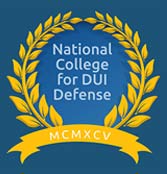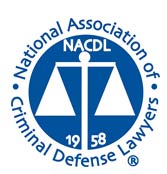Zealous Defense of Your Freedom and Future
When you are arrested for assault in Maryland, you may face a lengthy term in state prison and other severe consequences. Many people who contact an experienced Maryland assault criminal defense attorney at The Law Offices of Gerstenfield & Demirji, PC are under the mistaken impression that an assault requires actual physical contact with another person that results in injury. However, an individual may be convicted of assault under Maryland law when the alleged victim has not suffered any injury, and even when there is absolutely no physical contact between the accused and the complaining witness.
Why Our Maryland Criminal Assault Defense Law Firm Is the Right Choice
At our Maryland criminal assault defense firm, we understand that an assault conviction can result in severe court imposed punishment and non-judicial consequences that can follow a person and disrupt his or her life for decades. When our Maryland assault criminal defense attorneys represent a client, we zealously challenge the evidence and testimony of witnesses while seeking the exclusion of evidence or incriminating statements that are obtained illegally. While the precise defense strategies we utilize will depend on the evidence and circumstances of your case, some defenses that we may employ include:
|
While our Maryland assault charge defense lawyers conduct a close analysis and review of law enforcement reports, witness statements, forensic evidence, and law enforcement procedures so that we can fashion the most compelling defense based on the facts and law, we also work to negotiate a plea agreement that will keep our clients out of jail and avoid the harsh consequences of a serious criminal conviction. We always look for ways to exclude key evidence, attack the credibility of witnesses or otherwise obtain a dismissal of charges or acquittal at trial. However, this aggressive approach in Maryland assault criminal prosecutions often exposes weaknesses in the prosecutor’s case so that we are able to obtain a plea that may result in a lesser charge and diversion.
What Is Criminal Assault in Maryland?
If a prosecutor seeks to prove an assault in Maryland, the prosecutor must prove that the accused committed one of the following acts beyond a reasonable doubt:
|
What should be apparent is that two of the three types of conduct that constitute an assault above do not require any contact between the alleged victim and the criminal defendant. As a general rule, the severity of the punishment for an assault crime in Maryland will increase with the severity of the injury and the extent of the risk caused by the reckless nature of the conduct.
Maryland law regarding assault is different than in many jurisdictions because in other jurisdictions an assault often is considered the equivalent of an “attempted battery” whereas a “battery” refers to actual contact without consent. This distinction is not recognized in Maryland and all of these types of acts are considered a form of assault.
First Degree Assault: This form of assault is the most serious type of assault charge and can result in a felony conviction and a maximum term in state prison of thirty years. If the non-consensual contact was of such a nature that it created a substantial risk of causing permanent impairment of mental or bodily functions or disability, this will support a charge of First-Degree Assault. Given this definition, any non-consensual contact that actually causes serious injury will obviously provide a basis for charging this offense.
Second-Degree Assault: While this form of assault is a misdemeanor, the potential maximum sentence far exceeds a typical misdemeanor sentence. Although misdemeanors usually refer to less severe crimes with a maximum sentence of one year in jail, a conviction for Second-Degree Assault can result in a maximum of ten years in the state penitentiary and/or a fine up to $2,500. If a person suffers a genuine injury but not the type of debilitating or disfiguring injury that is sufficient to justify First-Degree Assault, the prosecutor will seek a conviction of this assault offense. When the alleged victim is a police officer the crime is a felony and the fine is doubled.
If an assault involves sexual contact, it will be considered a sexual assault. Regardless of the type of the assault charge, a conviction of any form of assault could result in a lengthy-term in state prison. The consequences of such a conviction could impact future employment, higher education opportunities, state occupational licensure, Second Amendment gun rights, the right of non-citizens to remain in the country, approval for rental housing, ability to obtain financing and more. We know what is at stake if our clients are convicted of an assault in Silver Spring or the surrounding areas of Maryland so we work aggressively to protect their rights and future.
Reckless Endangerment: Unlike some other states, Reckless Endangerment is categorized as an “assault” crime under Maryland law Code 3-204. Although several connotations of “Reckless Endangerment” exist, the general consensus is that it is a crime committed when one individual recklessly places another individual or group of people at risk of death or serious injury. “Reckless” implies to the court that the crime was not necessarily committed on purpose. Many Reckless Endangerment charges come by way of negligence or scenarios where although an individual did nothing to induce harm, they also did nothing to prevent it. It is a common charge for negligent parents. Under Maryland law, Reckless Endangerment is considered a misdemeanor and may be punishable by a maximum of five years in prison.
Free Consultation
Remember, if you are charged with assault it is not uncommon for charges to be pled down to a lesser offense if you have a veteran attorney like Robert Demirji on your side. Often times, someone charged with First or Second Degree Assault with no criminal history can plea down from First Degree Assault to Second Degree Assault or from Second Degree Assault to a Reckless Endangerment misdemeanor if they are cooperative with the court. Call the Law Offices of Gerstenfield & Demirji, PC today for a free preliminary consultation and become familiar with your options so that these unfortunate circumstances can be dealt with as soon as possible.






